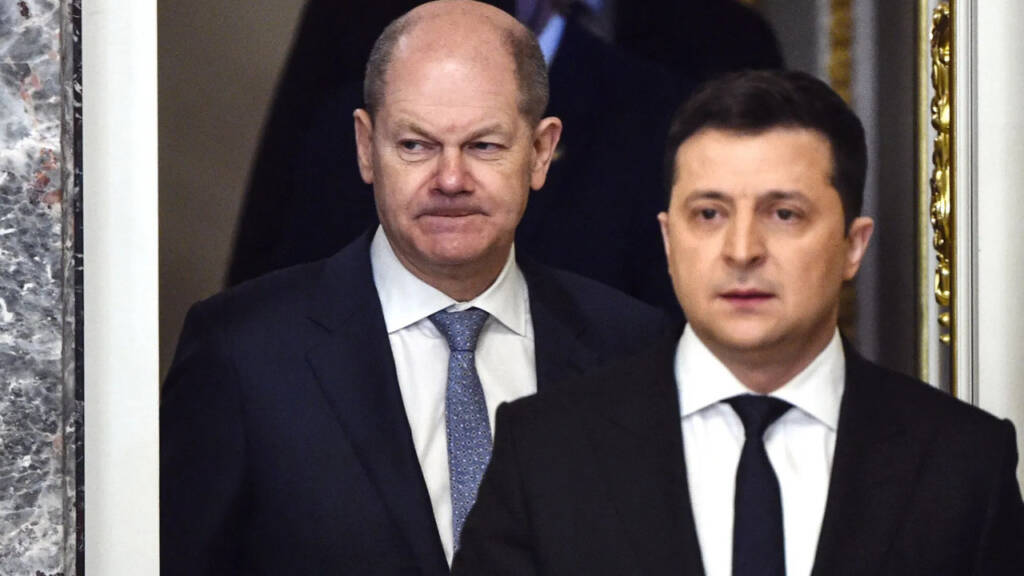Germany has certainly remained the “biggest backer” of Ukraine from day One of the war. They provided substantial military and financial assistance and led a robust European reaction. Initially, Germany proposed increasing military aid to Kyiv two or threefold while investing in its own armed forces to fortify European defense.
Under pressure from the US, Germany continued to increase aid, influencing other EU member states to follow suit. France also stood firmly in support of Ukraine. However, the outcome of Germany’s unwavering support remains uncertain.
Germany presently confronts significant economic challenges, grappling with an unprecedented budget deficit and a severe economic downturn. Recent months witnessed a contraction in Germany’s economy, resulting in persistently low business confidence and the grim specter of deindustrialization. Supporting Ukraine has inadvertently exacerbated Germany’s domestic issues, which makes aiding Ukraine the last thing in the to-do list.
Read More: It’s official Germany cuts Ukraine’s arms supply
Media reports indicate Germany’s government is preoccupied with domestic crises to the extent that discussions on the EU budget have been sidelined. According to Johannes Hahn, the EU’s budget commissioner, Berlin’s focus on domestic matters has prevented active engagement in EU financial talks.
Join us on Telegram: https://t.me/tfiglobal
Now, why is Berlin doing so? The decision for Germany’s withdrawal from these discussions can be attributed to a realization—a recognition that continued support for Ukraine resembles futile efforts. Germany finds itself overstretched, having reached a tipping point due to its extensive involvement. Consequently, abstaining from these talks potentially shields Germany from discussions involving Ukraine, a topic that Germany perceives as contributing to its current predicament.
Earlier this year, Germany, along with other member states, opposed the European Commission’s request for an additional €66 billion ($72 billion) to cover unforeseen expenses, proposing instead that Brussels make cuts in other budget areas.
Chancellor Olaf Scholz’s government faces a substantial fiscal deficit domestically, exacerbated by a recent Constitutional Court ruling prohibiting the repurposing of €60 billion ($65 billion) in leftover funds from the Covid-19 pandemic.
In a report on Friday, Politico quoted Johannes Hahn as saying that the “biggest problem is that Germany is so distracted by domestic issues that they literally don’t find time to deal with” EU finances.
Hahn dismissed suggestions made by a coalition of member states, led by Germany, advocating for reallocating existing funds to finance new priorities. He clarified the impracticality of such a maneuver due to the EU budget’s existing deficit. German Finance Minister Christian Lindner echoed these concerns, citing a projected €17 billion ($18.66 billion) shortfall in the 2024 budget after the Constitutional Court’s ruling.
The European Commission’s proposed additional funding, if secured, includes allocations for Ukraine, earmarking about €17 billion in grants for various purposes.
Reports from November revealed concerns among certain member states, including Germany, regarding Brussels’ intentions to allocate approximately €20 billion ($21.4 billion) over four years for military aid to Ukraine, as per Reuters citing unnamed diplomats.
Another report highlighted Germany’s efforts to decrease its contributions to the European Peace Facility (EPF), utilized primarily to support Ukraine in its conflict with Moscow. Berlin aims to diminish its share within the EPF, as reported by The Telegraph.
A confidential document obtained by the newspaper outlined Germany’s stance. It advocated for the consideration of its significant unilateral military aid to Ukraine within the EPF framework. Germany proposed that contributions to Ukraine could manifest through financial support within the EPF or direct supply of military equipment. The country argued that any in-kind contributions should be fully acknowledged against a member state’s committed contributions to the EPF’s Ukraine envelope.
As the largest economy in the EU, Germany contributes approximately a quarter to the bloc’s war chest. The Telegraph noted that if Germany proceeds with plans to seek reimbursement for aid sent to Kiev from the EPF, it would significantly reduce the fund’s available resources.
Read More: “Not Really Functioning” Germany Admits it is Delivering Trash Bags to Ukraine
As reported by The Telegraph, France, another significant EU member, has expressed discontent regarding the use of war chests. In a confidential document obtained by the newspaper, Paris advocated a cessation of transferring weapons from member states’ reserves to foreign militaries through the European Peace Facility (EPF). Instead, France proposed focusing efforts on collective procurement of military equipment from European arms manufacturers.
Hungary has also voiced explicit criticism of the EPF’s utilization in supporting Kiev. It repeatedly obstructed endeavors to allocate additional funds from the war chest to Ukraine.
Germany’s recent actions signal a diminishing interest in further assisting Ukraine due to its domestic predicaments. This stance is evidenced by its efforts to reduce contributions, reflecting a shift in priorities amidst its internal challenges.
Watch More:
